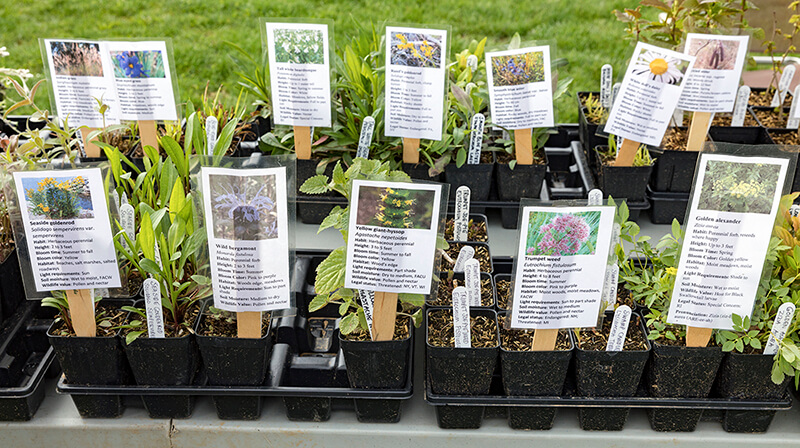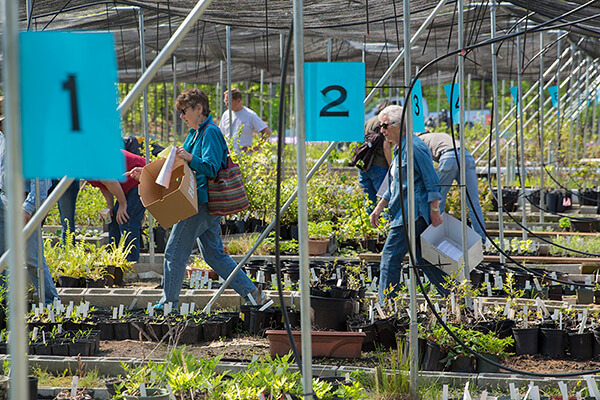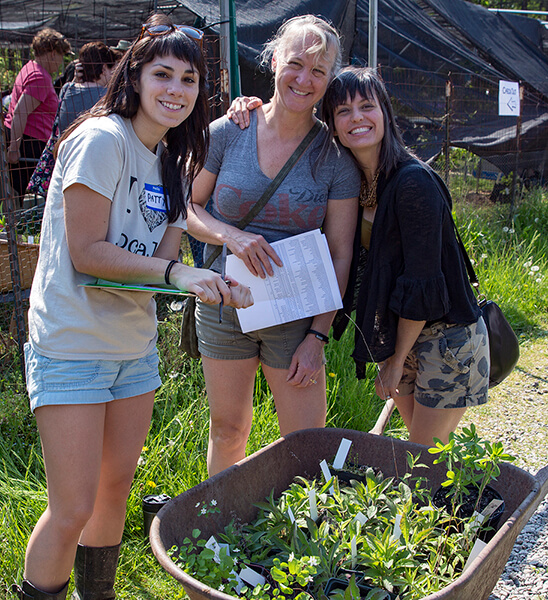NATIVE PLANTS FOR THE PENNY-WISE
Sticker shock. That term is usually associated with purchasing a car but it can happen when shopping for plants, too. Plants can be fairly pricey — especially those larger-sized garden center trees and shrubs. The cringe factor is multiplied when landscaping sizable areas. But do you need such a large plant to begin with? I say absolutely no, you don’t.
START SMALL
If you have a little patience it’s a sensible idea to purchase a smaller, younger plant for a fraction of the cost. In short time, that whip of a sapling will be the size of the tempting five-gallon container of greenery you wisely passed over. And it will probably be healthier. Seasoned gardeners know that the joy of tending a garden is in nurturing, observing and in watching life grow. No instant garden is needed.

WHAT GROWS IN YOUR AREA?
Common garden shops, besides shrinking your wallet, offer very few native species. When they do have them in stock, these natives aren’t necessarily found naturally growing where you garden — they’ve evolved in other regions of the country. They could also be cultivars.
The USDA Plant Hardiness Zone Map is no longer a sound tool to measure what to plant. It’s simple: we just plant local-ecotypes — and as many as we possibly can. We know that planting natives local to an area, in the conditions they evolved in, lowers water and chemical inputs and makes for strong, thriving plants. California is the perfect example. Many homeowners are replacing non-local landscaping and lawn with plants that originated there to offset the current multi-year drought’s effects.

FIND A LOCAL SOURCE
I sometimes point and ask an employee at my nearby garden center, “Do you know where this plant came from?” The answer is usually something along the lines of “not from around here.” Their plants could be propagated and trucked in from any number of nurseries, from many miles away (sometimes as far away as Oregon — and I live in Virginia). Another downfall is they’ve been previously doused in pesticides so they can legally cross state lines. With today’s grim environmental outlook, these are good reasons to buy local, don’t you think?
So, where are the best places to shop for well-priced, locally grown native species you ask? I recommend checking with your state’s native plant society, your nearby nature center or even your county. These organizations sponsor native plant sales at varying times of the year — and their prices are wonderfully low. The plants may be small but as we know from experience, size does matter.
EARTH SANGHA:
NURSERY FOR THE FUTURE
Here in Northern Virginia we are particularly fortunate to have a grower of locally sourced and affordable native plants: Earth Sangha. Their Wild Plant Nursery is my very favorite place to volunteer my time and of course, to shop. More than 250 local-ecotype species are available to the public — and many are considered by Lisa Bright, the energetic co-founder of Earth Sangha, as underused in garden settings. She is more than happy to recommend specific species for your growing conditions.
Lisa and her Earth Sangha family are the driving force behind this progressive non-profit. By permission, they collect seeds from natural areas around the metro DC area and lovingly raise them for natural land restoration and for the gardener. It’s the perfect operation.
I know when I purchase a plant from Earth Sangha, and I site it correctly, it will do well. Extremely well. I know it didn’t travel clear across the country and that it wasn’t indignantly dug from the wild. I know it’s not a manufactured cultivar that could cause problems for natural areas in the future. I further know it wasn’t drenched in harmful pesticides that could last for years in the potting soil and in the plant itself. It’s a no brainer — a win-win situation for all — me, my pocketbook and our Mother Earth.

